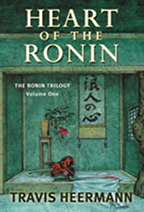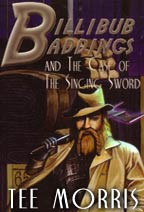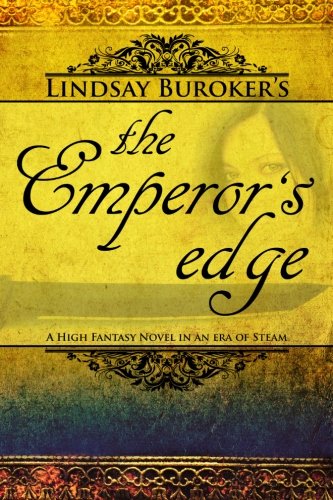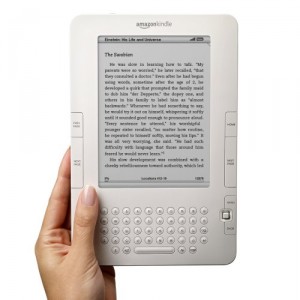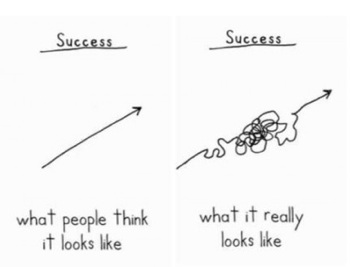 Just before Christmas in 2010, I e-published my first novel, The Emperor’s Edge. Encrypted and a short story collection followed. Next came Flash Gold, a novella I never would have written if I’d been thinking of getting published under the traditional paradigm. 18,000-word stories just don’t sell. But with ebooks…there are no rules on length. (For more on that, see previous posts How Does Short Fiction Sell in Ebook Form? and Novellas and Short Stories–Ebooks Not Just for Novels.)
Just before Christmas in 2010, I e-published my first novel, The Emperor’s Edge. Encrypted and a short story collection followed. Next came Flash Gold, a novella I never would have written if I’d been thinking of getting published under the traditional paradigm. 18,000-word stories just don’t sell. But with ebooks…there are no rules on length. (For more on that, see previous posts How Does Short Fiction Sell in Ebook Form? and Novellas and Short Stories–Ebooks Not Just for Novels.)
In June, I published Dark Currents, a novel-length sequel to The Emperor’s Edge, and in August, I published Hunted, a followup to Flash Gold. I just finished a major editing pass of the third EE book, Deadly Games, and I’m hoping to get that out by the end of November.
Looking back, it seems like I’ve been doing a heck of a lot of writing and publishing! I did have Encrypted, Emperor’s Edge, and the short story collections finished before I thought of turning to self-publishing, but I’ve still done two full-length novels and two novellas this year. In other words, I’m writing a lot more than I was before self-publishing. Before that, I was on-again-off-again with my writing (EE was five or six years in the making, with larges gaps in the middle where I wandered off to play games like World of Warcraft instead of doing any writing at all, ahem). What’s changed?
Well, a couple of things. I always dreaded the idea of querying agents (and stalking them into the bathroom at writing conventions to pitch my story to them from the next stall over…), so I didn’t bother. E-publishing isn’t easy, exactly, but its barriers are ones that I didn’t mind. Learning how to get an ebook online and promote it were more my cup of tea (I’ve been making a living online, one way or another, since 2003).
So, as a self-publisher, I was able to get my first book out. As for what’s prompted me to write so much this last year, there were a couple of things. First, it’s the difference between nobody reading your work and lots of people reading it (and asking for more, thank you, good readers). Also, I have to admit it’s motivating when you’re actually making money from your writing.
Ah, yes, the numbers…
I always waffle back and forth on whether I want to talk about this stuff or not, but I know folks are curious. There may be a point when I decide not to, but since I’m still making less than my teacher buddies, I don’t think it’s too uncouth.
Though I’m not a bestseller (and with my quirky sense of what’s amusing and what isn’t, probably never will be), I’ve been fortunate to find some success, even though I ignore many of the book promotion tactics that don’t fit my personality (see my post on: book promotion tips for hardcore introverts).
Since I released Dark Currents in June, I’ve been selling more than 2,000 ebooks a month, and I’ve steadily broken the $2,500/mo mark. August was my best month to date with earnings bumping into the $3,000 range, though sales dropped in September (about $2,500 again).
Amazon made one of my short story collections free in August, and I believe that’s what gave me a boost there (authors interested in trying this, see my video on How to Get Your Ebook Listed for Free at Amazon / Barnes & Noble), albeit a temporary one.
Some of you guys may be thinking I’d make more if I charged more for my ebooks. Maybe so (though I’m sure I’d sell fewer copies, so who knows if things would even out), but it’s a crummy economy all around, and, for now, I prefer to keep my ebooks affordable, rather than experimenting a lot with price. My highest priced ebook is Dark Currents at $3.99. I have the same philosophy with print publishing, and I made my paperbacks as inexpensive as I could without losing money.
So, what’s next?
As I mentioned, the third Emperor’s Edge book should be out next month. I’ve heard from many authors that their sales tend to increase across the series as they get more books out in the sequence. I know that was the case when I released the second book, and it’s also been true for the Flash Gold novellas. It’ll be interesting to watch. I admit, I’m always a tad jealous when other indie authors come onto the scene with one or two books and start out selling thousands of copies a month (of one title) right off the bat (I’ve yet to break 1,000 a month with any particular book).
As far as blogging goes, some of you know that I was writing a lot about self-publishing and book promotion here (sharing the things I was learning along the way), and I recently decided to break that off and start a self-publishing blog. I figured people who find this site and want to contact me about my books might not be particularly interested in those topics.
Of course, that’s left me not entirely sure what to blog about over here. If you have any thoughts or suggestions for topics, let me know. Of course, I’ll chat up my books now and then (if you’re reading this, and it’s not yet October 7th, you can still win signed paperback copies of Emperor’s Edge and Dark Currents), and you’ll probably get some travel talk as I’ve been selling off most of my stuff so I can go on some extended trips. (One of the perks of being an author/blogger is that you can work from anywhere in the world.)
But as for the rest, I guess I’ll figure it out as I go along.
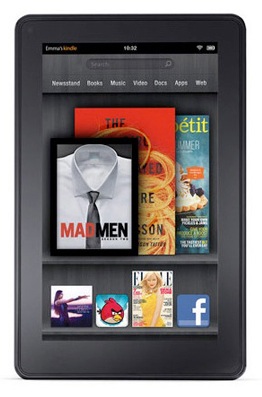 I’ve been eyeballing the iPad since it came out, but haven’t been willing to pony up the $500+ for one yet, but now that the Kindle Fire Tablet is on the way, I might give that a try. Is anybody else thinking of getting one?
I’ve been eyeballing the iPad since it came out, but haven’t been willing to pony up the $500+ for one yet, but now that the Kindle Fire Tablet is on the way, I might give that a try. Is anybody else thinking of getting one?
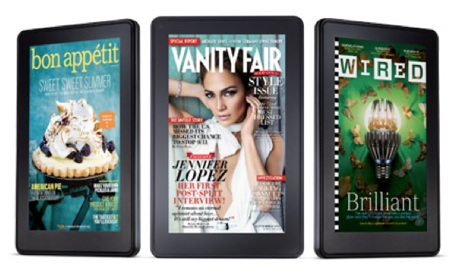
 Just before Christmas in 2010, I e-published my first novel,
Just before Christmas in 2010, I e-published my first novel, 